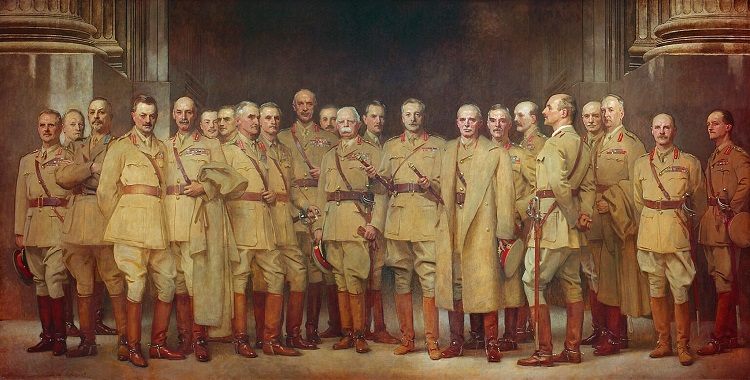War creates a ‘boys’ club’

War potentially creates a ‘boys’ club’ where men help each other more than they help women, according to new research carried out at the University of St Andrews.
A team of researchers at the University of St Andrews and the Institute for Advanced Study in Toulouse (IAST), France, found that humanity’s history of warfare and migration could have influenced how altruistic men and women are.
The study published by Evolutionary Human Sciences suggests that men, the sex which has historically participated in wars and appears to have migrated less often, would have tended to be more altruistic than women and receive more help from both men and women.
Led by Alberto Micheletti – who completed his PhD in the University’s School of Biology and is now a research fellow at IAST – the team used evolutionary models to investigate how sex differences in involvement in warfare and migration can influence which sex helps more and which sex is helped more.
Recent years have seen great multidisciplinary interest in the suggestion that warfare between human groups might have driven the evolution of extreme levels of cooperation. Until now, however, little attention had been paid to the possibility that warfare might have resulted in sex differences in cooperation.
Dr Micheletti said: “It can be advantageous to cooperate with members of your social group, because these individuals tend to be genetic relatives.
“At the same time, group-mates are in competition with each other over mating and resources, and this discourages helping.
“Women do not generally participate in warfare or enjoy its spoils and so they tend to compete only with relatives in their home group. We found that, for this reason, it can be advantageous for both sexes to help men more than women.”
The research also suggested that migration patterns can play a key role in influencing altruism. Migration between groups is ubiquitous in human societies, but often one sex moves more than the other. Numerous lines of evidence suggest that, in many prehistoric human populations, men tended to stay in the group where they were born, while women migrated to other groups.
Dr Micheletti said: “If men migrated less often than women, this would have resulted in settlements of highly related men. We found that this would have encouraged them to be more altruistic. And, considering the effect of warfare on competition, these societies could have acted as ‘boys’ clubs’, when men helped more and received more help.”
The study also found that the reverse would likely be true if women had enjoyed the spoils of war or migrated less than men. Interestingly, some smaller non-state societies seem to show such patterns.
Dr Micheletti said: “Human societies show remarkable variation in how men and women cooperate and these behaviours are influenced both by our evolutionary past and by changing societal attitudes. We hope our research has shed some light on a possible source of this variation and will encourage more investigation in this sense.”
Category Research